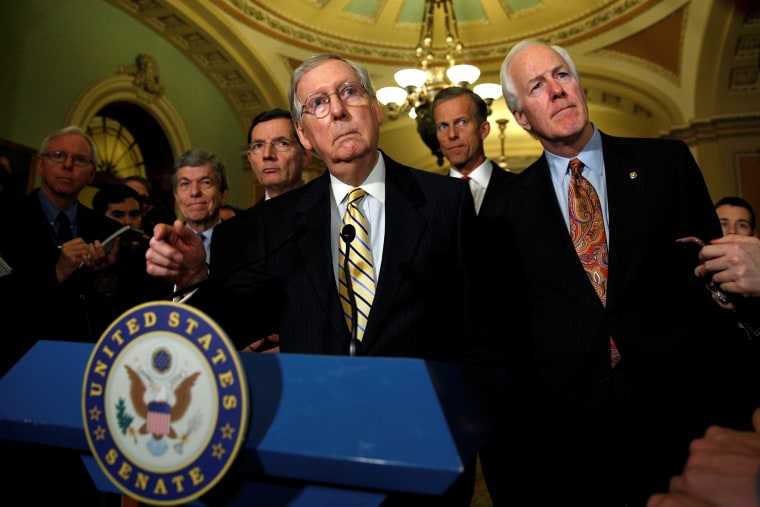Now that the Senate Republicans' health care plan has been released, the debate is now shifting away from process and towards the merits of the bill and its legislative process. But before the political world moves on, several GOP senators see one last opportunity for some gaslighting.
One of the most striking -- and historically unusual -- aspects of the Senate Republicans' approach to health care has been their willingness to operate in total secrecy. GOP leaders appointed members to a "working group," which negotiated behind doors, and kept every detail hidden -- from the public, from stakeholders in the health care industry, from much of the Senate -- until yesterday.
As Rachel noted on the show the other day, even a Republican member of the "working group" conceded earlier this week that he hadn't seen the legislation he was ostensibly helping write.
Compounding the secrecy, GOP senators have refused to hold legislative hearings in any committee, preferring to keep the health care overhaul in total darkness and away from scrutiny.
And yet, consider these quotes from Senate Republicans yesterday:
Sen. Pat Roberts (R-Kan.): "There's no lack of transparency.... You shouldn't even ask that question."
Senate Majority Whip John Cornyn (R-Texas): "I can't imagine a more transparent and open process."
Senate Republican Conference Chairman John Thune (R-S.D.), asked by Fox Business why his party relied on a secretive process: "There hasn't been any secrecy."
None of these members was kidding. They may have been shamelessly lying, but they actually expect people to believe the rhetoric.
Circling back to an item from early May, you’ve probably seen references in recent months to the politics of gaslighting and it’s worth appreciating why. The origin of the word comes from a British play featuring a man, Jack Manningham, pushing his wife, Bella, deeper into madness, deliberately hiding items from their home and making her believe she misplaced them. As the story progresses, she increasingly questions her own mental health as a result of her husband’s duplicitous manipulation.
While executing his schemes, Jack dims the gas light in the house – something Bella notices, but which Jack insists is part of her mental deterioration.
As Lauren Duca explained very well in December, to “gas light” is to “psychologically manipulate a person to the point where they question their own sanity.”
In the health care drama, we, I"m afraid, have been cast in the role of Bella.
